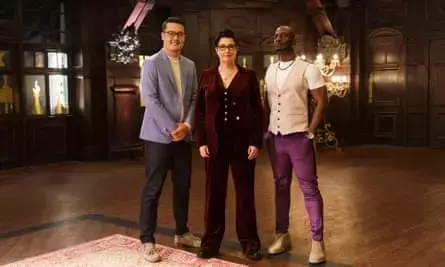
In a world where television thrives on spectacle and drama, the new show Chess Masters: The Endgame presents an intriguing yet challenging concept. This series aims to showcase the intellectual prowess of chess players while attempting to captivate a broader audience. However, despite its noble intentions, the show struggles to bridge the gap between the cerebral nature of chess and the entertainment demands of modern television. With twelve emerging stars from Britain's growing chess community competing over eight episodes, the program faces unique challenges in making this silent, strategic game appealing to viewers unfamiliar with its nuances.
A Deep Dive into Chess Masters: The Endgame
Set against the backdrop of Cardiff’s historic former coal exchange, Chess Masters: The Endgame brings together twelve individuals, each with their own compelling personal stories. In the grand ballroom, these competitors engage in intense matches, followed by rapid puzzle-solving sessions designed to test their skills. The show attempts to humanize the contestants by highlighting their diverse backgrounds—such as Nick, who discovered chess during his time in prison and now promotes it as a tool for rehabilitation, or Navi, who turned to chess as a mental escape during his battle with cancer.
To enhance viewer engagement, the producers have introduced colorful nicknames for the contestants, ranging from "The Unruly Knight" to "The Chess Princess." While these monikers aim to add personality, they sometimes feel forced and out of place. The show also features two sub-presenters, including grandmaster David Howell and chess coach Anthony Mathurin, who provide brief explanations of key moves and strategies. However, these explanations are often too rushed for beginners and too simplistic for seasoned players.
The format includes both one-on-one matches and timed puzzle-solving challenges, culminating in dramatic moments as contestants await the verdict of "Puzzle complete!" or "Puzzle incomplete!" Winners are rewarded with a symbolic ascent to the "balcony of dreams," while losers await their next chance to prove themselves. Despite these efforts, the show sometimes feels like a missed opportunity, lacking the depth and charm that could have made it truly captivating.
From a journalistic perspective, Chess Masters: The Endgame raises important questions about how niche, intellectual pursuits can be translated into engaging television. While the show has commendable goals, it ultimately falls short in fully embracing the beauty and complexity of chess. Perhaps future iterations should focus more on educating the audience about the intricacies of the game, rather than relying on gimmicks to capture attention. In doing so, the program could better honor the intelligence and dedication of its participants, offering viewers a richer, more rewarding experience.
